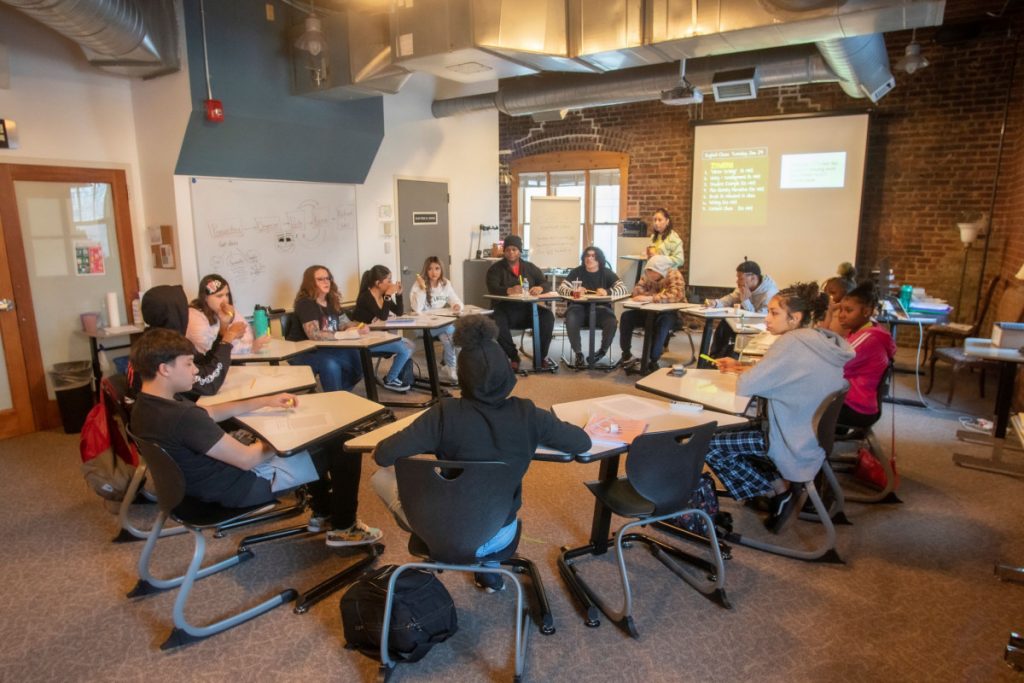Editor’s note: This article was written by Alex Medler, Executive Director of the Colorado Association of Charter School Authorizers.
Colorado’s charter school law requires District Accountability Committees (DACs) to review charter applications. The law is largely silent on the details and results of those reviews.
Alan Gottlieb’s recent commentary in Boardhawk criticizes Denver for asking the DAC to stop summarizing reviews with a decision to accept or deny applications. Denver’s action is reasonable, is part of a larger effort by the district to solicit community input regarding chartering decisions, and aligns with many strong authorizers in the state.
Gottlieb’s criticism misses the mark on a complicated aspect of charter school authorizing.
Colorado DACs and their roles in authorizing are diverse and there is no consensus on what they should do. Many charter advocates and districts support Denver’s new approach. There are legitimate reasons why districts with strong authorizing practices ask DACs only to provide input on an applicant’s strengths and weaknesses and not to make summary judgements.
Ultimately, elected school boards decide whether to approve an application and their decisions can be appealed to the State Board of Education (SBE). Ideally, during appeals the SBE should explore the quality of the district’s authorizing process and defer to districts that employ strong reviews and provide evidence.
Unfortunately, that is not always the case.
The Colorado Association of Charter School Authorizers brings districts together to strengthen charter school authorizing. We recommend district train DACs in their role in charter application reviews and the district’s own application materials. While DACs may review the entire application, districts can direct them to sections that reflect their interest and expertise. The DAC should generate questions about an application that are asked during a capacity interview with the applicant.
Finally, the DAC should provide a list of strengths and weaknesses they find in the charter application that the school board considers before making its decision.
In Denver’s recent appeal, the DAC voted to approve the application while the school board decided to deny. During the appeal the applicant and State Board members cited the DAC vote as one of the reasons to reject the district decision. Ignoring the recent case for a moment, consider various ways hypothetical DAC votes and deliberations can undermine a well-founded district denial.
DACs members can bring tremendous community assets and insight to the process, and many DAC members are expert in different aspects of public education. But not all DACs have that kind of capacity, some are poorly trained in how to review charter applications, and — to honor their independence — districts are reluctant to direct DAC work.
DACs are often left to figure out what they think on their own, leading to DAC votes and deliberations that undermine district decisions, whether they agree with the district or not.
A DAC may review the entire application, but members may focus on sections they care about and that match their expertise. Often DACs focus on educational programs, intended student populations, community support, and impact on equity. The DAC may lack expertise in key issues like budgeting and special education. If the DAC is pleased by the applicant’s approach to the issues it explores, members might vote to approve the application.
Meanwhile, the district’s internal and expert review find fatal flaws in a hopeless budget and scant planning for special populations. The school board weighs the DAC input, but ultimately sides with the staff recommendation to deny the application. During an appeal, the applicant focuses on issues the DAC identified as strengths rather than the fatal flaws; and the applicant and members of the State Board treat the DAC support as evidence the school board was wrong.
Charter advocates, meanwhile, often complain of DACs making highly political decisions that treat a proposed charter as a threat to nearby schools. Or DACs debate the concept of charter schools in general, instead of the pending proposal. These DACs may vote against a proposal because they oppose charters as a concept or to protect local schools. The SBE considers both reasons to be inappropriate grounds for denial.
If the local board denies the application for legitimate reasons, and it is appealed, the DAC’s decision and deliberation become part of the record. In these cases, an applicant easily frames the denial as having been based on the DACs problematic debate and rationale. This undermines a legitimate decision by the district, even though the DAC vote aligned with the district decision.
Community engagement and input are important elements of a charter application review and CACSA and our members continue to explore ways to deepen the community connections in authorizing. DPS implements additional strategies to solicit and explore community input that other districts would be smart to emulate.
Their recent change does not undermine that effort and is part of strong and appropriate charter school authorizing.




